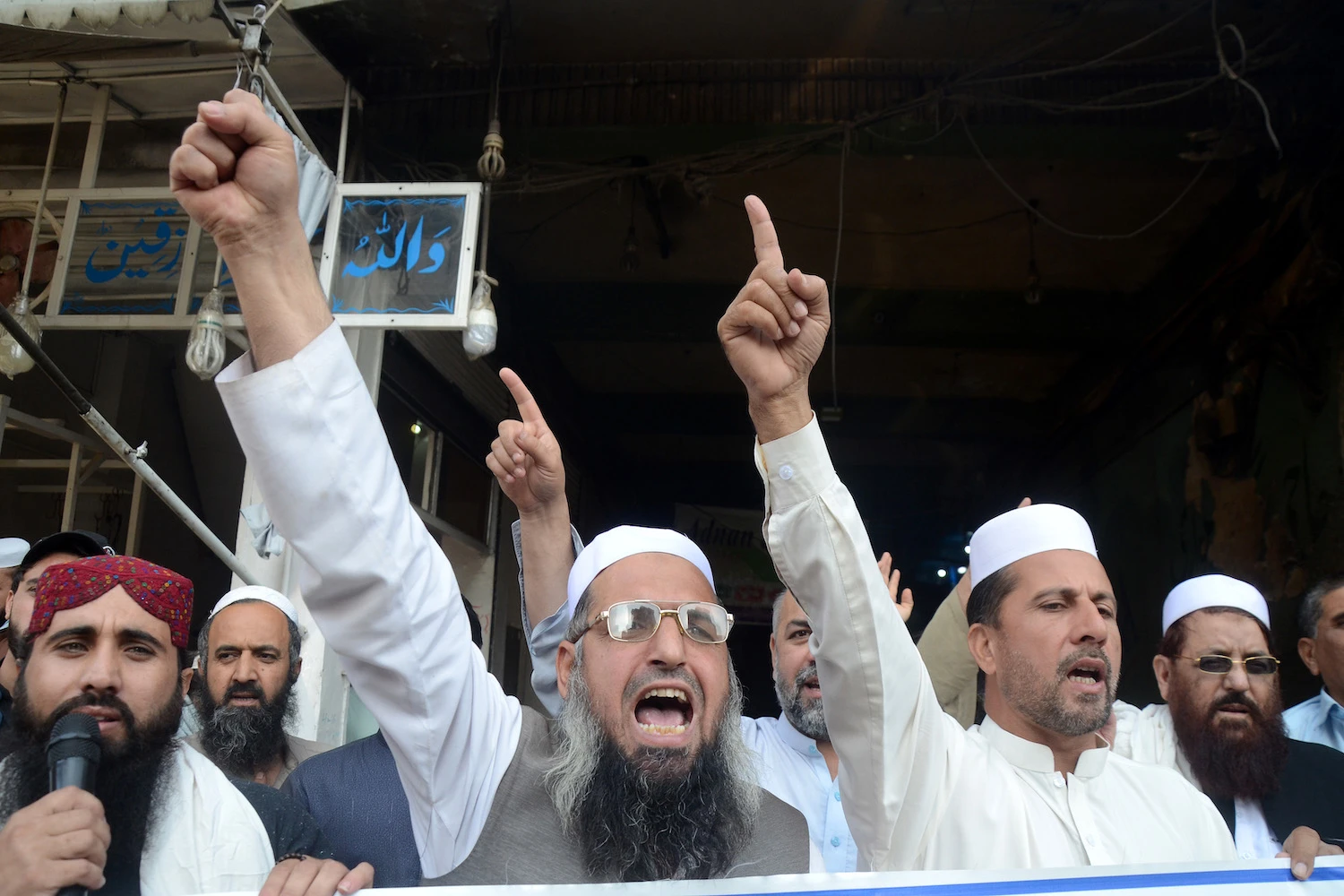

On Feb. 3, the Pakistan Telecommunication Authority (PTA) blocked Wikipedia nationwide. In its statement before the ban, the PTA said the online encyclopedia had refused to remove “sacrilegious contents” from the website. In 2020, Pakistan had threatened legal action against Google and Wikipedia for “disseminating sacrilegious content,” regarding Islamic beliefs held by minority Muslim sects. And while the ban on Wikipedia was overturned three days later, there’s an evident surge in Pakistan’s anti-blasphemy policymaking targeting Muslim minorities, which in turn is further emboldening Islamist vigilantes.
On Feb. 11, a Muslim man was lynched by a mob in the eastern city of Nankana Sahib over allegations of desecrating the Quran. The victim was killed inside the local police station, with the law enforcement authorities being hapless bystanders. Often, local police are complicit in victimizing individuals and communities once Islamist thugs conjure the accusation of blasphemy. And this thuggery has the backing of the state, which is now expanding its already notorious blasphemy codes.
The Pakistan Penal Code (PPC) was co-opted after Partition in 1947 from the Indian Penal Code (IPC) of 1860, with Sections 295 and 298 dedicated to desecrating worship places and outraging religious sensibilities, respectively. The IPC under British rule added Section 295-A to curtail “deliberate and malicious acts intended to outrage religious feelings.” The original sections, identically present in the IPC, are equally applicable to all religions. In the 1980s, under the Islamist military dictatorship of Muhammad Zia-ul-Haq, Pakistan added Islam-specific clauses, defining violent penalties over blasphemy against Islam alone.
Last month, the National Assembly passed amendments to the PPC to expand its blasphemy laws. One of those amendments, the Criminal Laws (Amendment) Bill, 2023, ups the penalty from three years to life imprisonment for “disrespecting” the companions (including the caliphs), family, or wives of the Prophet Muhammad. The PPC criminalizes any sacrilege against the Quran and the prophet, with penalties including capital punishment.
While Pakistan is yet to execute anyone for sacrilege, its blasphemy laws continue to encourage mob violence; at least 93 people have been killed extrajudicially since 1947—including the most recent victims—and more than 1,500 have been imprisoned since 1987, the year after the death penalty was introduced for heresy against Islam in Section 295 of the PPC. The most high-profile victim of the blasphemy laws was one of their staunchest critics, former Punjab Gov. Salman Taseer, who was gunned down by his security guard Mumtaz Qadri in 2011. Taseer’s killing silenced debate on the blasphemy laws and turned Qadri, executed over terrorism charges in 2016, into a saint, with his tomb turned into a shrine.
Last year, a teacher was attacked and killed by her colleague and students in an all-girls school, a mentally unstable man was stoned to death by a mob, and a man born without arms was drowned, in separate incidents of blasphemy killings.
Last month, a Muslim man threatened to incite mobs against a Christian security officer working at the Karachi airport by accusing her of blasphemy against the prophet after the woman had denied his acquaintance entry into the premises. The brutal killing of Sri Lankan business professional Priyantha Kumara illustrated the menace of Pakistan’s murderous blasphemy laws nearly 15 months ago.
While the blasphemy laws have disproportionately and overwhelmingly harmed non-Muslims in Pakistan, many of those victimized have been Muslims themselves. Sometimes these are individuals targeted for personal vendettas; however, many are Muslims who espouse beliefs deemed divergent from those sanctioned by majoritarian orthodoxy. The man killed for blasphemy in October was killed for expressing devotion at the graves of Sufi saints, a significant tenet of Barelvi Islam that the vast majority of South Asian Muslims have traditionally adhered to.
The ideology of takfir, or excommunicating Muslims, is based on outlawing divergent beliefs and penalizing those deemed guilty per Islamic law, or sharia, with punishments for apostasy that include execution. The takfiri ideology fuels murderous sharia codes and jihadi groups alike. Outfits such as the Islamic State and its Pakistani Taliban affiliates have bombed Sufi shrines over the years, deeming the mystic practices heretical. The Islamic State-orchestrated 2017 bombing at the Lal Shahbaz Qalandar shrine in Sehwan, killing at least 90 people, remains one of the deadliest terrorist attacks in Pakistan’s history.
The Islamic State and the Pakistani Taliban have similarly targeted Shiite mosques across the country, dubbing Shiites, comprising the second-largest sect of Islam, collectively guilty of sacrilege. And the Criminal Laws (Amendment) Bill, 2023, passed last month, is the systematization of this anti-Shiite narrative, which borders on codification of the entire sect’s excommunication.
Thank you for reading!

